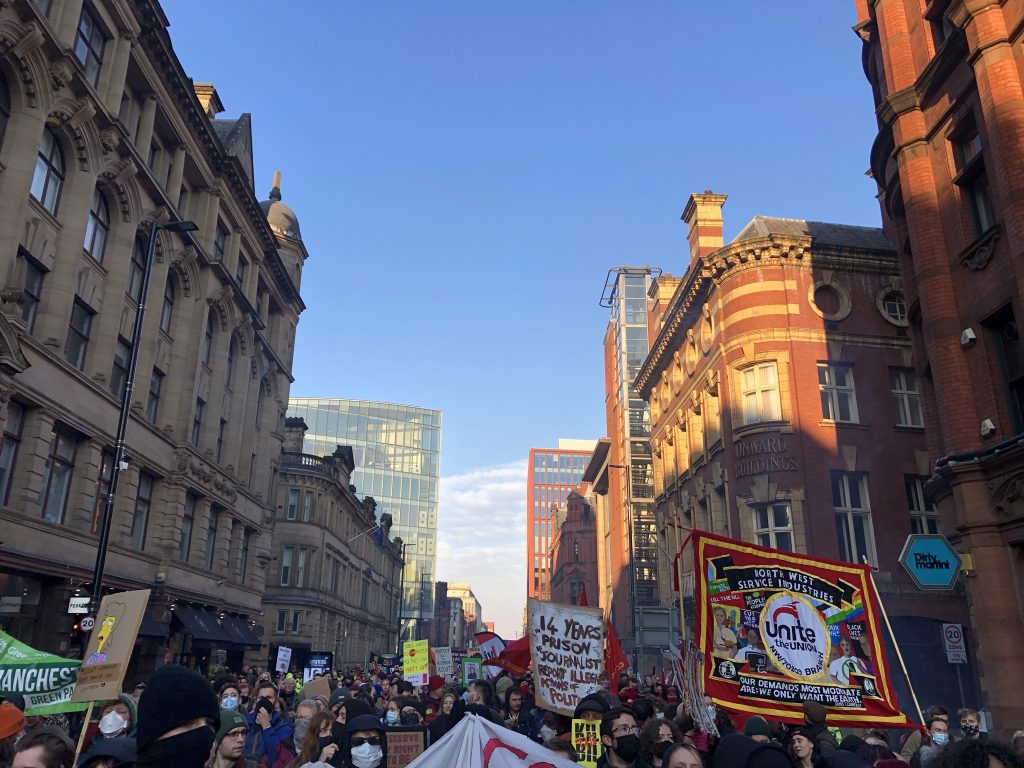Those of us who have been following the progress of the Nationality and Borders Bill – also known as the #AntiRefugeeBill – were disappointed, if not surprised, to learn that it had been passed by the House of Commons last week. MPs voted down amendments by the House of Lords that had aimed to soften the most punishing parts of the Bill and provide safe routes for people to claim asylum in the UK. Now the Bill will go into “ping pong”, where parliamentarians debate those amendments. It’s likely that most will be rejected and the Bill will become law. For those in our sector, who have been warning of the dangers of the government’s plans for the past year, it can be hard to feel hopeful. But we want to focus on the positives we’ve seen in recent months: solidarity, collaboration, local leadership and communities standing together with people who are seeking safety.
Throughout the last year it’s been clear that the government is deeply out of step with public sentiment.
The ideas in the Bill were first proposed in the “New Plan for Immigration” in March 2021, and the government ran a “consultation” in which, we later learned, 75% of the respondents opposed the plans. Unfortunately, the warnings in these responses were not heeded and the government ploughed ahead. While the Bill moved through Parliament, international and local events showed time and time again that it wasn’t what the British public wanted. The fall of Afghanistan to the Taliban prompted outpourings of support for Afghan arrivals from local communities; Little Amal arrived in the UK to welcoming crowds; and more recently, in light of the war in Ukraine, 100,000 people said they would be happy to host a refugee. On Monday 21st March, #TogetherWithRefugees demonstrations all over the country showed people standing up in solidarity with the people the government is leaving behind. In Manchester people with lived experience of the asylum system led our action – you can read more about it here. And a recent poll showed that two thirds of the public are against people being denied rights based on how they arrived in the UK to seek asylum – opposing one of the main pillars of the government’s attack on the asylum system.

When our national leaders are failing us and endangering the most vulnerable, sometimes local leaders are better placed to see how such plans are unworkable and unacceptable.
In January Asylum Matters showed how many local and devolved leaders had spoken out to condemn the Bill. Since then the Greater Manchester Combined Authority have called for an urgent review into the Bill in their statement of solidarity with the people of Ukraine. This comes after their December 2020 statement standing against evictions from asylum accommodation and against the No Recourse to Public Funds policy and the Hostile Environment. Greater Manchester MPs have also recently spoken out in solidarity with refugees – in support of Manchester’s #TogetherWithRefugees demonstration, Afzal Khan, Navendu Mishra and Kate Green have all condemned the Anti-Refugee Bill. You can read their statements here.
It’s clear we can’t rely on our government to do the right thing when it comes to people fleeing war, violence and persecution.
Instead, collaboration and solidarity at a grassroots level will be key to continuing to fight this Bill and the ongoing impacts it will have when it becomes law. We’ve already seen this in Manchester when hundreds came out to protest both the Nationality and Borders Bill and the Police, Crime, Sentencing and Courts Bill; and when groups like South Manchester Sanctuary come together to sponsor refugees to start new lives. We’re proud to work with lived experience groups – RAS Voice, One Strong Voice, These Walls Must Fall Manchester, WAST and others – to bring forward the voices of experts by experience of the asylum system in our movement. And the Step Change Consortium of nine Greater Manchester organisations is ensuring that people in our city-region seeking asylum are as well-supported as possible, tackling barriers to accessing services.

We want to raise up these reasons for hope at a time when it’s more important than ever to continue the fight for people seeking asylum – for them to have safe routes, a functioning asylum system, and be able to build secure and happy lives. Follow us on Twitter or sign up to our newsletter to keep up with what we’re doing and how you can get involved.
